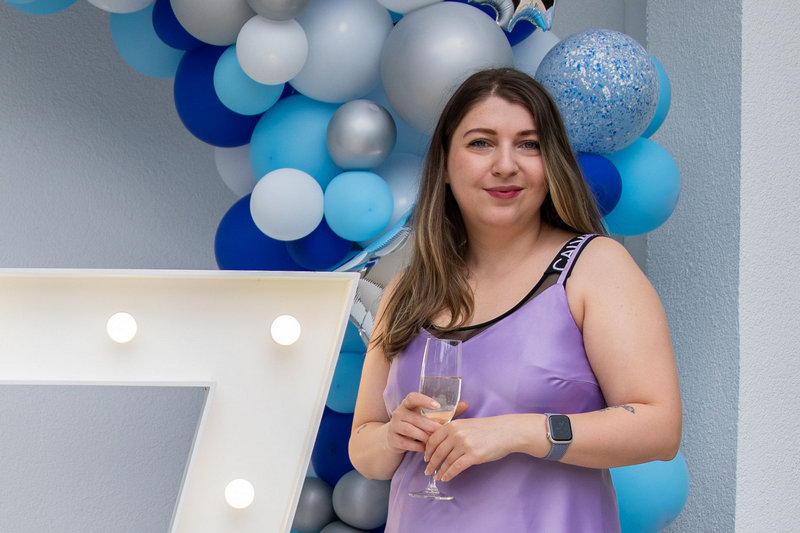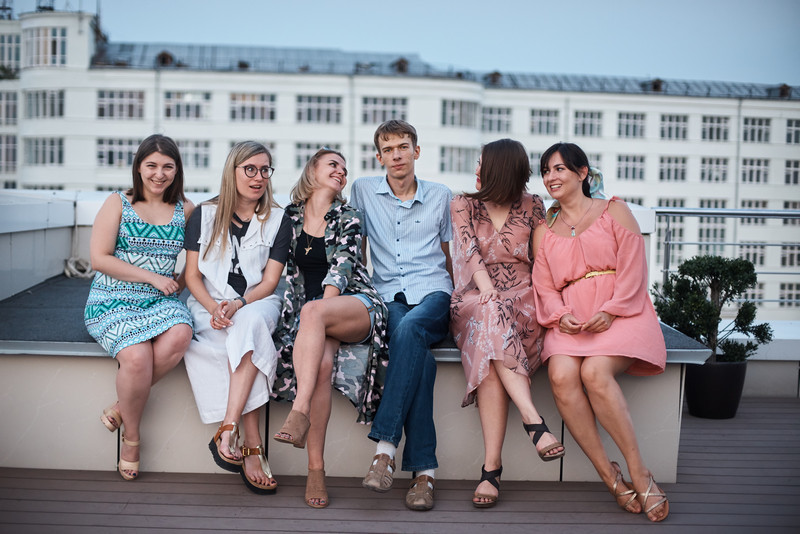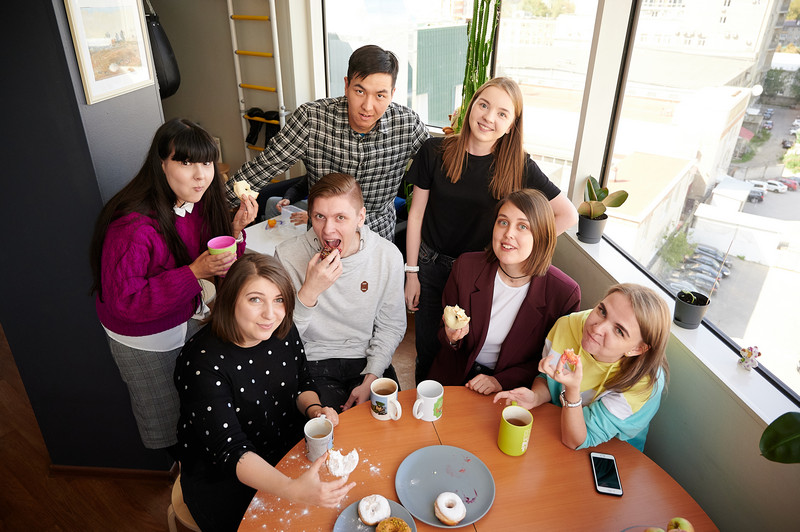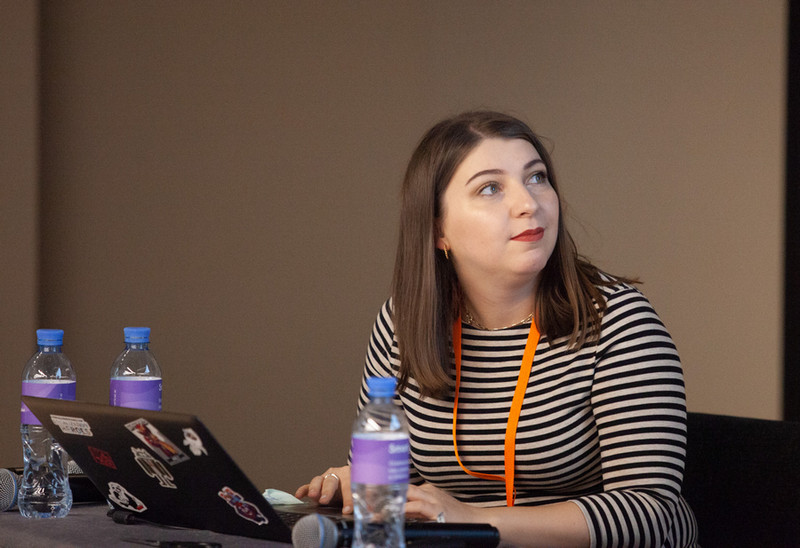Marina Turkina has been with Allcorrect for 6.5 years, progressing from a terminology manager to the position of Head of Localization Production. She shared insights into her daily work, favorite games, and the challenges of relocating to another country.

How did you come to join the company and find yourself in your current position?
Before Allcorrect, I worked at a medical company where I could lead a project for 1.5 years, only to see it discontinued due to budget constraints. One day, I visited a job vacancy website and noticed a position for a project manager-terminologist at a certain organization. I went through the interview process and became part of Allcorrect. My position involved a lot of routine work – manually cleaning glossaries. Nowadays, most of the tasks I used to perform are automated. Soon after I joined, one of my colleagues left, and I took over her projects, working more as a manager and less as a terminologist. In 2017, the company faced a crisis, leaving only a few project managers on the team, and my workload suddenly increased. Despite having less experience than others, I had a strong desire to work, and what inspired me was knowing that I could rely on the support of my colleagues and management in any situation.
Tell us about your current responsibilities – what are the global goals and day-to-day tasks?
My work is not easily defined within regulations and job descriptions. My task is to ensure that we provide services of the desired quality and volume. To achieve this, I need to understand the current state of production and anticipate what it will be like in six months. In addition, I handle positioning tasks – who we are in the localization world, the position we want to occupy, and how we work with clients. It may sound rather vague, but the nature of the job itself involves operating in an environment of uncertainty. Speaking of more specific tasks, they include analyzing the current situation, making forecasts, identifying issues, and revising existing processes. Sometimes, I miss the “hands-on” work, so when I have a free hour, I approach my team and ask if anyone needs assistance, and I engage in French spell-checking.

Since 2020, the company has started providing services in game art creation and narrative design. Has the introduction of these new areas of activity had an impact on your work?
For clients who order localization services from us, we currently handle narrative design with the help of our localization managers – this involves new processes and new people. It has become easier for us to engage in transcreation as it is closely related to narrative design. As for the art direction, it has less influence on my work. We do share our expertise with the art team, but their work is completely different. New opportunities have emerged in terms of planning work for current clients – we understand that if we receive a task for creating a new scene, a localization task will follow in a couple of months. And of course, we have to “divide” resources – for example, the team responsible for sourcing freelance performers.
Another positive change is that employees have more opportunities. If someone becomes tired of localization, they can change their career track without leaving the company.
What kind of incidents have occurred in your work?
In our line of work, there is always something unexpected happening. For example, when an urgent and large order for a rare language pair comes in on the evening of December 30th, while all employees are already celebrating the New Year. The important thing is that we don’t turn a blind eye to such moments, and any difficulties or mistakes are turned into standard procedures.

What do you like about the localization industry?
I love languages, and I once dreamed of learning all the languages in the world, although that’s probably impossible. But working with languages is incredibly cool; it’s globalization in the broadest sense of the word. I like that thanks to the work of my team, thousands of people will laugh at the same joke, regardless of the language they speak. And we’re the first ones to learn all the cool storylines even before the games are released.
Some players prefer to play in the original language and argue that localization is unnecessary. What is your opinion on this?
It’s great if there is an opportunity to play in the original language. However, with such an approach, a person may miss out on a whole range of awesome games – Korean, Chinese, Polish, and more. Moreover, we should not forget that there are children’s games that should be translated into the child’s native language by default.
Do you enjoy playing games?
About five years ago, I bought myself a console, and a whole world of awesome games opened up before me. Before that, I often played mobile games, and to be honest, I still do. I have nothing against match-3 games, and I’m proud to say that I’ve reached level 950 in Candy Crush Saga. As for the games we’ve worked on, I really enjoy Jedi: Fallen Order. Personally, I often play with the original voice acting and subtitles because it provides practice in English, which I currently lack.

Not long ago, you moved to Novi Sad. What was the most challenging part for you in changing your place of residence?
I moved in October 2022, but it feels like it was a long time ago because a lot has happened since then, from arranging all the necessary documents to celebrating the New Year.
Speaking of challenges… Naturally, I miss my family, friends, and some familiar things, like certain shops. Serbians are generally quite tall, and finding shoes in my size 34 is nearly an impossible task.
It’s really great that we moved as a big group – when colleagues are also friends, you don’t feel lonely. There is always someone to turn to for help, like when you need assistance moving a TV into your home. After the move, we started to have more informal interactions with colleagues and plan various activities. Plus, I live just 5 minutes away from the office, so I have an extra free hour in my day that I used to spend on commuting.
What is the most challenging aspect of your work?
I have to accept the fact that things will never go exactly as planned. And it’s not because the plan is flawed; circumstances constantly change, sometimes several times a day. Decisions have to be made quickly, and the level of responsibility is high. Moreover, the level of problems varies greatly – from a linguist who sends machine translation instead of a proper translation to events of global significance. All that’s left is to accept the fact that all brilliant plans devised today will have to be changed tomorrow. But I have great colleagues around me who care, and with such a team, anything is possible.
It sounds like there is a lot of stress in your life. How do you cope with it?
I sew. I bought a sewing machine here and set up a mini workshop. It’s a fantastic way to shift focus for my brain, hands, and body.
I also work on maintaining a work-life balance. To maintain this balance, something has to be within the “life” zone. I’m a homebody, so my hobbies include playing games, reading, and sewing.
And of course, I work with a psychologist. A course of sessions once a year helps address the root causes of stress. I also bought a neck massager with microcurrents. It really helps relieve tension after a long day at work.

What advice can you give to someone who wants to start a career in the localization industry?
If you love languages and have analytical skills, entering the industry won’t be difficult. Most localization companies provide training from scratch for their employees, and we are no exception. You should be prepared for the fact that you are unlikely to have a clear job description; you will constantly have to make decisions and think a lot. And, of course, time management skills will come in handy. With these basic qualities, everything will fall into place naturally.



